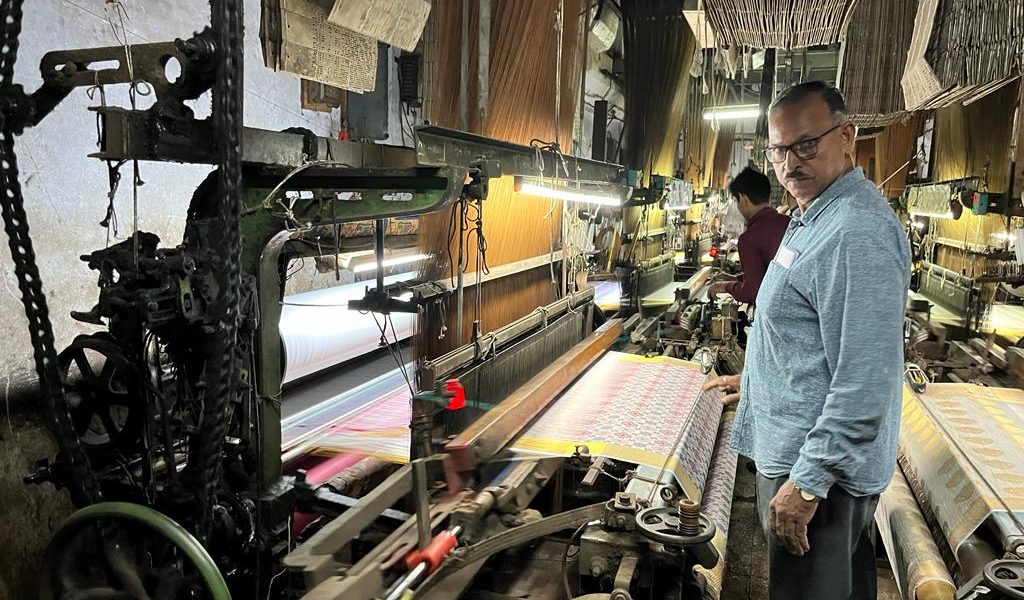
China has become a focal point for discussions in Surat, India's textile hub, amidst the upcoming Gujarat Lok Sabha elections. The government's issuance of Quality Control Orders (QCOs) targeting low-quality textile imports, particularly from China, has sparked concerns within the industry.
Impact on prices and viability
The primary concern for Surat's textile industry is the potential impact of QCOs on fabric and yarn prices. A significant portion of Surat's yarn supply comes from China at competitive rates. Blocking these imports has resulted in yarn shortages, pushing domestic prices upwards. This price rise is likely to trickle down to finished textile goods, potentially increasing the burden on consumers.
Industry experts also worry about the long-term viability of Surat's textile sector in the face of global competition. While QCOs aim to prevent low-quality imports and promote domestic manufacturing, they might disrupt the established supply chain. The industry argues that Chinese imports provide stability in both price and quality. Disrupting this source could make Surat less competitive in the global market.
MSMEs and the PLI scheme
Micro, Small and Medium Enterprises (MSMEs) and small weavers in Surat are particularly apprehensive about the QCOs. They believe these restrictions add unnecessary hurdles, especially since they were not included in the government's production-linked incentive (PLI) scheme due to the high investment quantum required.
Technical challenges and BIS oversight
The complexity of the technical specifications outlined in the QCOs poses another challenge. Many textile traders lack the in-depth knowledge required to navigate these regulations. The Bureau of Indian Standards (BIS) is responsible for overseeing quality standardization across various sectors, including textiles. QCOs are issued by central government ministries after consulting with BIS. Violations of these orders can result in hefty penalties and even imprisonment.
There are reports that the QCO list will be further expanded in the coming year, raising concerns about its impact on Surat's textile industry. The city, once renowned for its silk weaving, is now a commercial hub for textiles. The bustling textile markets of Surat, like Sahara Darwaja and Old Bombay Market, are the lifeblood of the city's economy. The industry hopes that a balance can be struck between quality control and maintaining Surat's competitive edge in the global textile market.
It may be noted, the textile industry in India is estimated to be worth $165 billion. Surat is a major center for producing synthetic fabrics and yarns. The recent QCOs pertain to various technical textiles, including geo-textiles, agro-textiles, and medical textiles.












